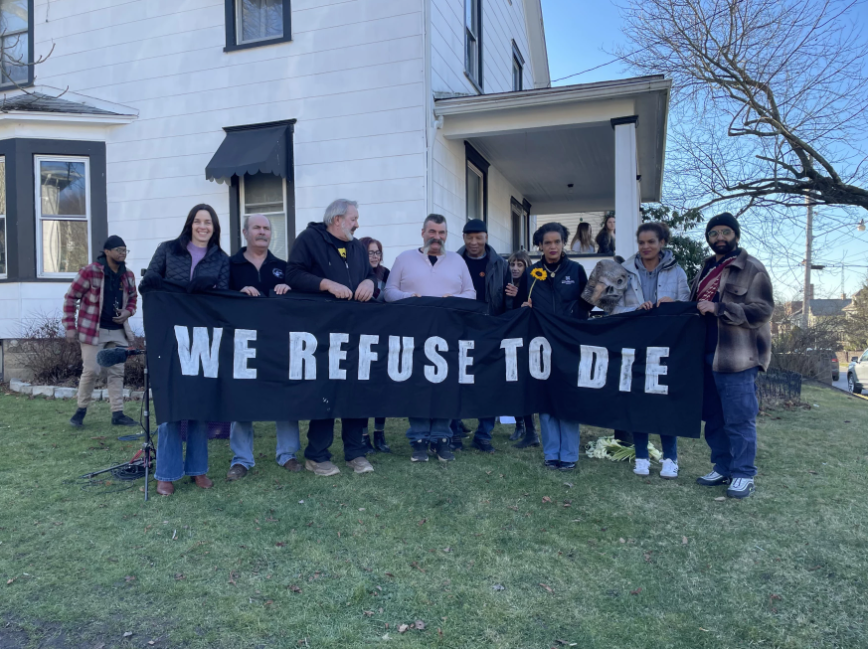
By Leila Waid.
It’s hard to believe that it has already been one year since the Norfolk Southern train derailed in the small and quiet community of East Palestine, OH. The community members have faced uncertainty and fear of how their health has been impacted by the exposure to toxins, such as vinyl chloride, present at the burn site. Burning vinyl chloride can produce dioxins, a chemical that poses immense danger to human health. Over the year, many residents have spoken out about the health risks they are experiencing, such as increased asthma in their children, skin rashes, bleeding from the ears, and new diagnoses of cancer. Also, residents have pointed out how the train derailment has impacted them financially. One of the residents, Ashley McCollum, talked with ABC News about how she has been displaced from her home for the past year. Unfortunately, Norfolk Southern, who had been paying for her and her family to stay in a hotel, said they would no longer fund her accommodations. Now Ashley and other displaced residents have a hard choice to make – return to the community they believe will make them sick or come up with alternative living arrangements with their own finances.
This harsh abandonment that many residents have experienced feels all the more infuriating when considering how much Norfolk Southern has spent on lobbying. According to Public Citizen, “the company and its subsidiaries spent $2,340,000 lobbying the federal government in 2023 – up 30% from the $1,800,000 it spent the year before.” Interestingly, no new railroad safety legislation was passed by Congress after the Norfolk Southern train derailed. One would imagine that when such a severe accident occurs that threatens the health of thousands of people, the policymakers would immediately work in a bipartisan manner to make sure that such an accident never happens again. Notedly, both the House and the Senate introduced bills to increase railroad safety, but a year later, those bills have not moved forward. House of Representatives member Marcy Kaptur directly connects the lack of action by Congress on the bills to the lobbying being carried out by railroad companies, such as Norfolk Southern.
Without stricter regulation, who knows when and where the next derailment might occur and which American town could be the next East Palestine.
Frustrated by the lack of answers and support, the impacted community in East Palestine created the Unity Council for the East Palestine Train Derailment. One of the most recent actions the Council undertook was a “ceremony of solidarity,” an event held on the first anniversary of the train derailment to raise awareness about the suffering the community is still going through. The Council wanted to showcase to the country that what happened in their community could happen anywhere in the country.
The ceremony was conducted in partnership with We Refuse to Die, an environmental justice campaign utilizing art to communicate the message. Artists and activists have a long history of working together effectively to enact change. By moving people emotionally, artists can tap into the feelings and emotions of individuals that motivate them toward change. In this case, the campaign was focused on showcasing that, just because individuals in East Palestine may have been forgotten about by the railroad industry and politicians, they are still here and will continue to fight until they can rebuild what was stolen from them by the explosion.
